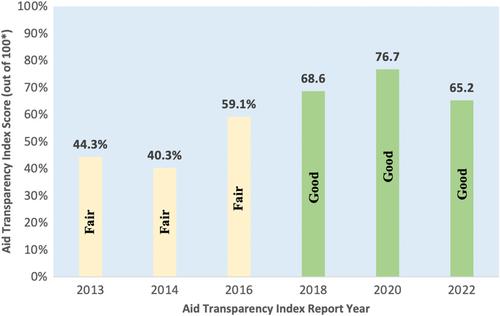“Localization”—direct donor support for national organizations in aid recipient countries—has become a top priority for international development. The United States Agency for International Development (USAID) pledged to raise the proportion of direct funding to national organizations to 25% and for 50% of funding to involve “locally led” input. Independently, USAID commits to proactive disclosure of project information. This study analyses sectoral priorities, access to project data, and localization trends to inform policy discussion about how USAID can reach its twin localization goals, with a focus on Colombia, the largest US aid recipient in Latin America.
An open government perspective can shed light on whether and how development agencies are making progress towards localization. Moreover, user-centred information disclosure by donors is necessary to inform locally led development. The goals of this study are to document USAID's sectoral funding priorities, gaps in data disclosure, implementation actions, and direct local funding percentages to make patterns more visible to stakeholders. We ask: What are the strengths and limitations of public disclosure of data concerning US aid in Colombia?
This analysis uses open-source data review methods to bring together different sources of publicly available data. These methods include triangulating government data disbursed across multiple sites, recoding government data to make trends visible, and identifying barriers to data access.
Public data indicate that US funding for peace-related projects increased in the years following Colombia's 2016 Peace Accord, though the security share of total US aid remains high. Funding trends demonstrate that USAID is far behind its localization goals in Colombia, though absolute funding totals to local organizations are increasing. Finally, publicly available project data are not user-centred, require technical acumen to access, and are fragmented across multiple sites.
User-centred disclosures are key to locally led development to ensure informed participation and accountability to stakeholders.



